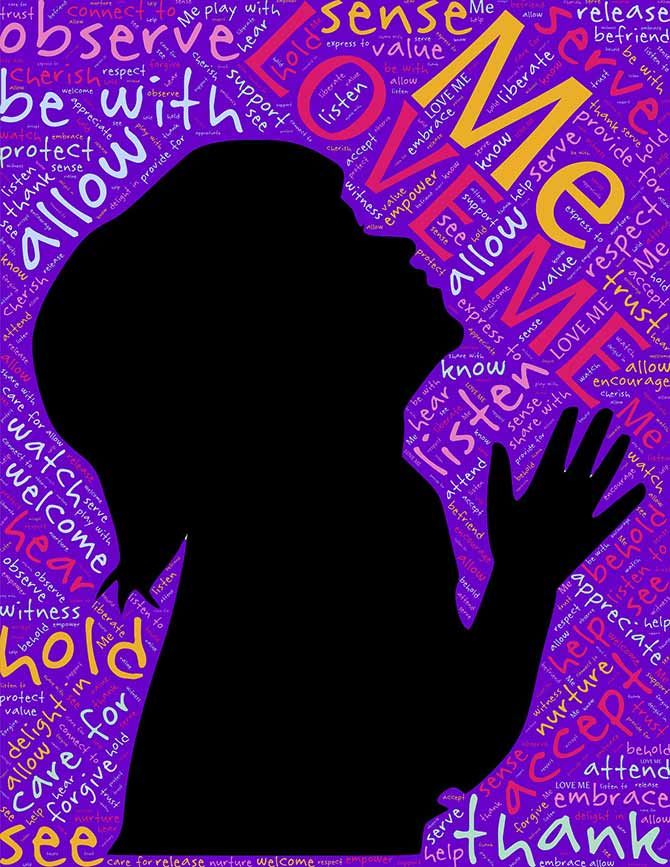Children below 7 years of age need to develop a positive image about their genitals.
It should not make them feel that their genitals are dirty, something to be ashamed about says author and parenting expert Swati Popat Vats.

Most parents love to teach their children about life, discipline, career and every other aspect of life, but dread teaching them about sex.
Elders put away the decision till puberty, which means the child will have to wait for a good 12 years before s/he has any knowledge about sex.
Let's break this to you -- a child's first escapade with sex does not happen with puberty, it starts as early as the preschool years.
First, a child becomes aware of his/her sex organs.
The child then realises that there is a difference between girls and boys.
Many of them also become aware of the fact that babies are born from their mummy's stomach.
Unfortunately, at this stage, most children also come to terms with the ugly term 'sexual abuse'. The perpetrators feel that when children are young, they won't know about the wrongs being done to him/her.
That explains why parents need to face -- sex education -- quite early with their children.
What is the best way to interact with your child about sex related questions?
Should we wait for children to ask us or should we make them aware of it? These questions bother every parent.
I have always relied on German educationist and philosopher Rudolf Steiner's definition of what children need at each stage of life.
According to him, between 0 and 7 years, children learn best and thrive on imitation; from 7 to 14 they learn from authority, which means they need supervision, constant monitoring and a firm hand in rules and regulations, and 14 onwards, they need and thrive on independence.
Zero to 7 years
Kids in this age bracket will imitate whatever they see, so you must show them emotions like hugging and kissing in a positive light.
Let your child sleep separately, especially, when you and your partner are indulging in sexual activity.
Children below 7 years need to develop a positive image about their genitals. It should not make them feel that their genitals are dirty, something to be ashamed about.
They should be taught about 'genital manners'.
For example, girls should be taught to sit without showing their panties and boys, about not touching their genitals.
To ensure that your child is safe from sexual abuse, it is important to teach them about good touch and bad touch between 4 to 5 years of age. This can be done with a story, a teddy bear etc and they should know basics like:
- It is okay to hug someone or if someone hugs you.
- It is not okay to touch someone's genitals (between their legs) and not okay if someone touches yours.
- Only daddy and mummy can touch your genitals. If anyone else does, let mummy know about it.
- Do not allow anyone to kiss you on the lips.
- Close the toilet door while doing your 'wee wee' and 'potty'.
- Do not put any object/s in your genitals or let anyone else do it too.
Behaviours that affect children
The N.A.E.Y.C (National Association of Education of Young Children, USA) has good material on how children develop their self-concept in their journal Understanding Preschooler Development' by Margaret Puckett and Janet Black.
It says that some behaviours embarrass or worry adults -- such as when children ask direct questions about body parts and functions, giggle about and tease member of the opposite sex, engage in 'bathroom talk' or 'playing doctor.'
However, these are normal behaviours that simply show that children have a growing awareness of the differences between genders.
As a parent, it's important that your response to such behaviour is positive, informative, and age-appropriate. Acting shocked or embarrassed or ignoring questions is unhelpful.
Age seven to 14 yrs
At age 7, s/he is definitely more prone to experiencing bodily changes. When your kid enters puberty, Steiner says, authority will work.
Monitor what your child is watching, reading and talking to friends.
Close supervision is a must. Give him/her the freedom to ask you questions as otherwise, he may get wrong answers from somewhere else.
A child brought up with this kind of focused attention on sexual understanding and sex education, by the time he reaches the age of puberty of 14 years would have a healthy concept of and about sex.
S/he would be able to understand that sex is another need of the body, but a need that cannot be treated as lightly as hunger etc. It is a need that should be understood, something that one has to take responsibility for.
This is the right age to talk about sexual diseases, masturbation, AIDS and HIV and pregnancy and condoms.
Age 14 and above
Independence is the 'mantra' for children in this age group. So put the onus of responsibility on the growing child. Be vigilant but not overtly so.
Call his/her friends over, let him have a party at home, so you would be able to gauge his behaviour among his friends.
This is the right age to talk about sexual diseases, masturbation, AIDS and HIV and pregnancy and condoms. Independence is the 'mantra' for this age remember?
So put the onus of responsibility on the growing child be vigilant but not overtly so. Call his/her friends over, let him have a party at home and you would be able to gauge the sexual talk etc among his friends.
Sex is something that can be positive, healthy and a conscious part of life. Sex can also be intimidating, disappointing. But it is up to us as parents to make sex education a continuous part of the growing up years of our child.
Let's remove the ugliness in sex and make it a controlled and healthy aspect of our kid's lives.
Be alert about child sexual abuse
From an early age, make children aware of GOOD TOUCH and BAD TOUCH.
If young kids can learn about red light, green light and the importance of traffic signals while crossing the road, it is important to teach them about body safety as well!
Let us not refer to it as 'sex education' but call it 'body intelligence'.
When we fail to give our children a healthy outlook about sex, the three-letter word is replaced with the four-letter word 'porn', which may not be such a healthy alternative.
So, it's important for us as parents and educators to be the first and reliable source of information for our kids.
Lead image used for representational purposes only. Image: Kind courtesy johnhain/Pixabay.com












 © 2025
© 2025